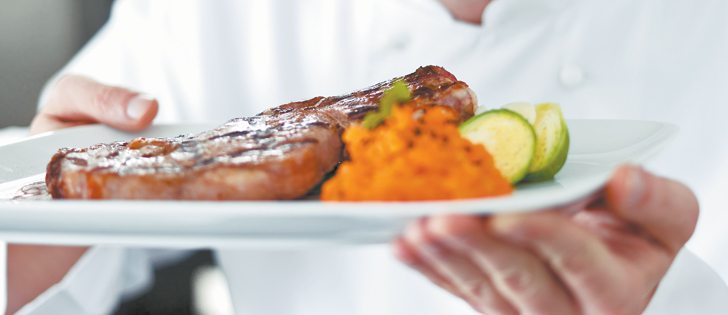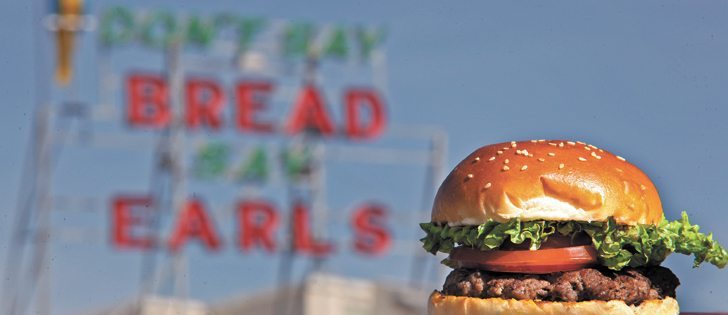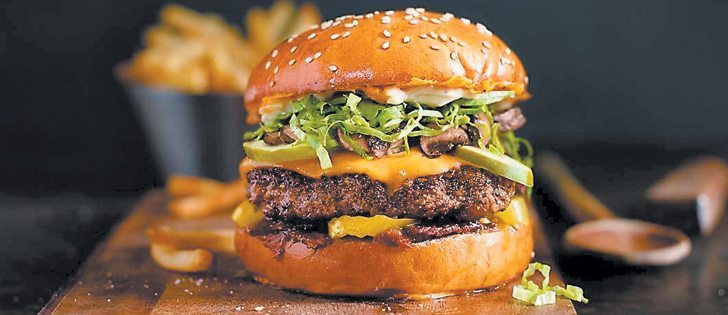Phil Gallagher got right to the point at the Manitoba Beef Producers meeting in Brandon.
Less than 30 seconds into his speech, the executive chef for Earls apologized for the restaurant’s decision last year to buy its beef from an American supplier and sell steaks as “certified humane.”
“We hurt a lot of people. We hurt a lot of people’s feelings, and we hurt a lot of people who work hard every day to produce the food that we consume in Canada,” Gallagher said Feb. 3 at the MBP meeting.
Read Also

Farming Smarter receives financial boost from Alberta government for potato research
Farming Smarter near Lethbridge got a boost to its research equipment, thanks to the Alberta government’s increase in funding for research associations.
“I learned a really hard lesson this year. Not only do I have to listen to my guests, I have to work harder with industry … when we decide to make a change of this magnitude that we’re in conversation and we’re doing the best thing for our partners (beef suppliers).”
Many of the ranchers in the room applauded Gallagher’s mea culpa, including Betty Green, who farms near Fisher Branch, Man.
She said his words, plus the commitment to work with cattle producers, was meaningful.
“We’ve had these other retailers put out these claim s… and never an apology,” she said.
“Never a full discussion to understand what they’re saying is problematic.”
Following his apology, Gallagher spent 15 minutes talking about the company’s decision in April to switch to an American supplier and how the company backed away from “certified humane” beef following a ferocious public backlash.
Steak sales at Earls’ 67 restaurants had been falling, and company leaders were seeking a solution. They decided to try beef raised without antibiotics or added hormones to measure customer response.
After some experimentation with price and serving size, they learned that many Earls customers preferred beef raised without antibiotics to Certified Angus when both were on the menu.
They couldn’t find a single company to supply all of the Earls restaurants with beef raised without antibiotics or growth promotants, so they went with a U.S. supplier.
That company, Creekstone Farms in Kansas, had become a Certified Humane ranch, which means a third party had certified its operations as humane.
The combination of buying beef from the U.S. and promoting its beef as “certified humane” was too much for cattle producers and many Canadians.
The backlash was immediate and fierce as Canadian producers lashed out at the idea of “certified humane” beef.
“We insulted them,” Gallagher said.
“We insulted them with the Certified Humane moniker of the third party (auditor). (It) implied they weren’t humane.”
The response was most intense in Alberta and Saskatchewan. Earls noticed the impact as the number of customers and sales dropped on the Prairies.
Of note, the response was different in other parts of Canada.
“In B.C. and Toronto, it registered in a far more positive way,” Gallagher said.
Earls’ other mistake was going with a U.S. buyer.
Gallagher said the company should have spoken to more Canadian ranchers before making such a decision.
“I think if we entered into conversations earlier we would have realized there could have been a different solution,” he said.
“We could have made contact with (Canadian) ranchers who were already doing that (no antibiotics or growth hormones).”
Earls is now working toward sourcing all of its beef from a Canadian supplier.
It is buying beef from Beretta Ranch in Ontario, which produces beef without antibiotics or added hormones. It has partner ranches across Canada, mostly on the Prairies.
On its website, Beretta Farms says its cattle are:
• prohibited from receiving antibiotics of any kind
• receive no added hormones or steroids
• sustainable
• humanely raised
Beretta is supplying Earls with enough beef for its restaurants in Manitoba, Saskatchewan and Alberta.
“We’re working hard with Beretta and (others) to get Canadian beef back into British Columbia and Ontario,” he said.
“Our prediction is between July or August all of our Canadian stores will have Canadian beef back on the menu.”
Earls has moved forward since last April, and in-store sales on the Prairies have rebounded. However, its decision may become a case study in the food and restaurant trade.
In December, CBC business reporter Diane Buckner called Earls’ “beefgate” one of the worst business blunders of 2016.
Gallagher learned from the mistake, but he reminded cattle producers that expectations around beef and food are quickly evolving.
“The thing about the restaurant business is it moves fast,” he said.
“If you don’t react fast enough to things happening in the business, then somebody else will.”
Contact robert.arnason@producer.com


















